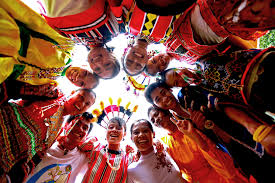Rights of the indigenous people in Bangladesh is unprotected
Bangladesh as a land of cultural and ethnic diversity has 54 groups of ethnic people living mostly at the North and South-East part of the country. According to 2011 consensus, indigenous people covers approximately 1.08% of the whole population. Their human rights are violated due to militarization, land grabbing and development instruction. Among all the groups, women and girls are the most vulnerable.
Bangladesh constitution does not protect the rights of the indigenous people. Article 19, 27, 28, 29 and 65 Constitution of Bangladesh mention to assure the gender equality and prohibit any sort of gender discrimination in public and professional life but our constitution does not recognize the legal status of indigenous women in the society. At present, section 65(3) assures 50 seats for the women in the parliament but this leaves alone the indigenous women. For this, they are excluded from making decision in the government body and taking part in the policy making process. In CHT Accord, 1997 the gender issues have been constructively agreed but those were not implemented properly.
The sexual violence on the women and girls is rising alarmingly. Most the time they are targeted by the political parties to fulfill ill desire. The availing laws in the country does not always protect their rights. Section 1(2) of Ordinance is applicable in the whole country except the CHT areas where most of the indigenous people live. Since the disputes of the indigenous people are mostly solved by their own customs, the Ordinance in not applicable for them. For this, they face many hurdles to seek state legal justice.
This year’s theme for the International Day of World`s Indigenous People is the United Nations Declaration on the Rights of Indigenous Peoples, (UNDRIP) 2007 to which Bangladesh is not a party. In 1972, Government has ratified the Indigenous and Tribal Populations Convention, 1957, which, in this Post-UNDRIP stage, is almost inoperable now. Immediate Ratification of UNDRIP and implementation of the provisions of CHT Accord, 1997 and the constitutional recognition can only bring the outcome which would ultimately meet the rights-based claims of the Indigenous women of Bangladesh.
Source: The Daily Observer


